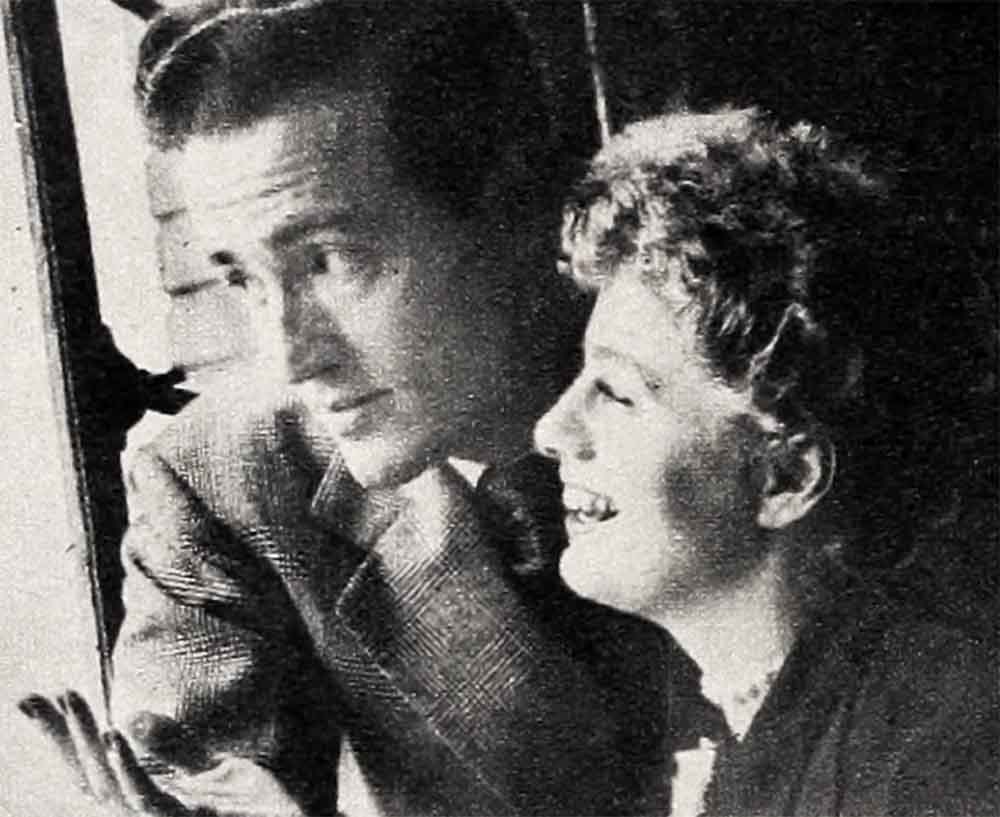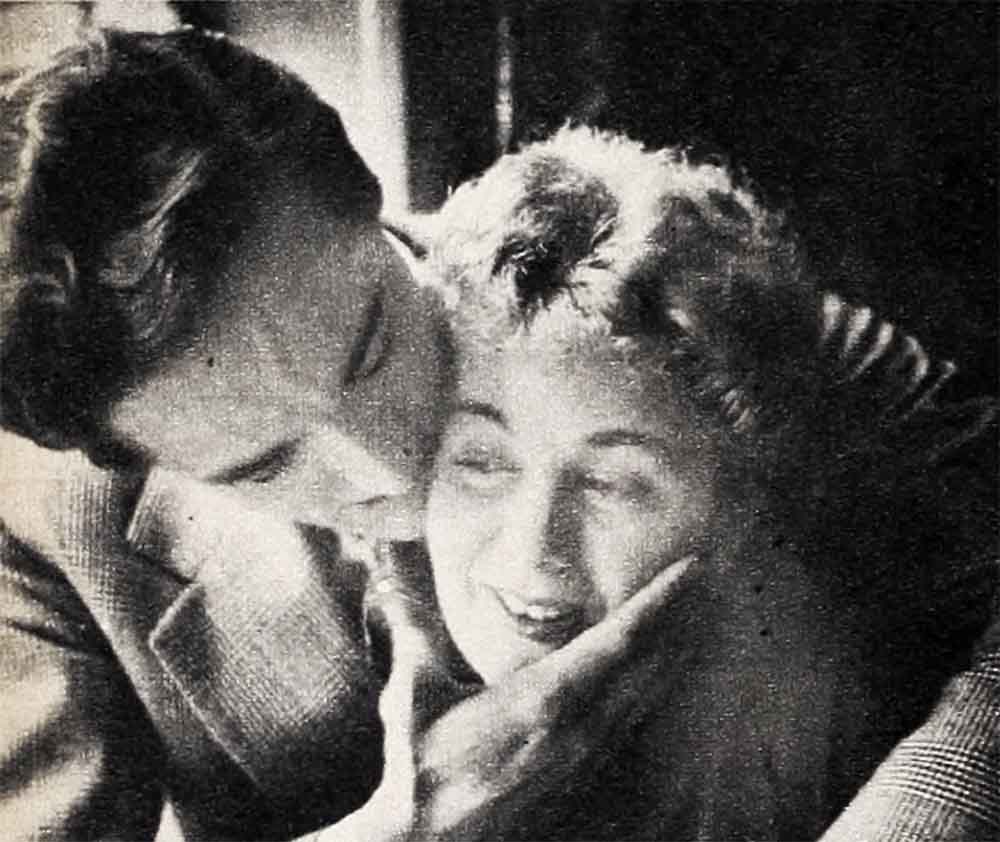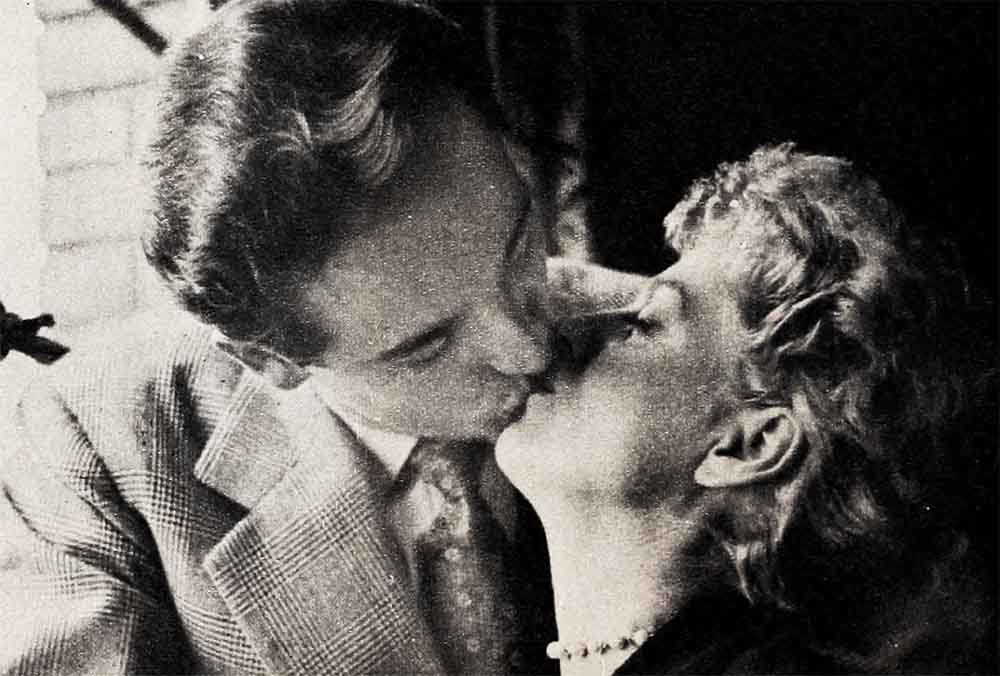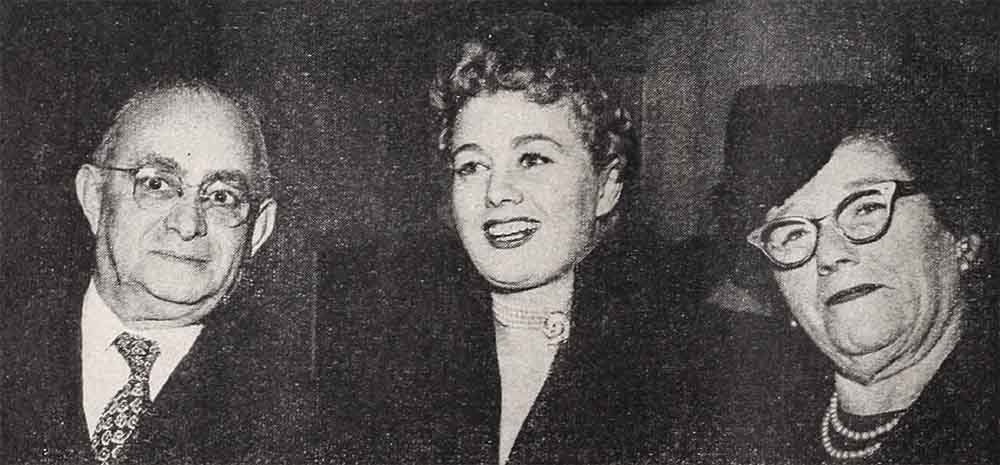Latins Are Not Lousy Lovers
“Whoever said,” asked Shelley Winters, “that Latins are lousy lovers?”
“What you say, Shellee?” Vittorio Gassman wanted to know. “Latins, they are what?”
“Wonderful! Latins are wonderful!” Shelley told him, her eyes making tender love to him the while. “That is what I say, Vittorio. But some other woman—who she was I do not know—said Latins were lousy—meaning bad—lovers.” She smiled. “The Latin she knew must have been very stupid. And very, very old.”
AUDIO BOOK
Vittorio laughed contentedly. And well he might, for his Shelley that noonday was much the best-groomed woman in the big dining room at the Twenty One Club. Also—I’ll give odds on it—the happiest.
No longer does Shelley go screaming around in disreputable levis, and unpolished moccasins, her hair untidy and her face without make-up. No longer, either, is she ambition- driven and restless. A dramatic metamorphosis it is, but she explains it quite simply:
“I am very much in love with someone wonderful who loves me,” she says. “For the first time in my life I am happy.”

Shelley and Vittorio plan to spend much of their time in Rome. There Vittorio is a stage actor of prestige who makes films, too, largely in order to support his theatre career, the theatre in Italy being pretty much art for art’s sake.
They’ve taken an apartment in Rome, neither large nor lavish—the identical thing they want to establish in New York and Hollywood also—a place they can enjoy, without worry, while they live in it and upon which they can lock the door, without worry, when their whims or careers call them elsewhere.
Vittorio’s cousin lives in the same house. His parents and married sister and nieces live close by. They all love Shelley. One niece, ten years old, very patiently taught Shelley just about all the Italian she knows, enough to handle simple sentences, to tell Vittorio how much she loves him and to assure his mother and father that she prays in the church, as they do, that a bambino will be born to her within a year and will be the grandson they so ardently desire, being blessed, so far, with granddaughters only.
In Rome Vittorio and Shelley want to establish an English theatre. And I promised to lend them all the help in my power when, late this summer, we meet over there: to interest the British and American ambassadors, to see that they have a long list of influential patrons and patronesses who will do much to insure their dreams of success.

Until late summer they will play together in summer stock. “Perhaps in ‘The Country Girl,’ ” Shelley explained. “That will be our honeymoon, appearing one week here and one week there on the. straw-hat circuit.”
“Why not Hollywood?” I asked. “It would mean more money.”
Together they shook their heads. Together they laughed.
“We’ll have made enough money to last us a while,” Shelley said. “Vittorio will have finished ‘The Glass Wall,’ which will be filmed in New York, almost entirely on 42nd Street. And I will have finished ‘Letter from the President’ at M-G-M.”
She turned serious. She reached for her husband’s ready hand. “We do not ” she said, “want to get caught up in any Hollywood pattern—feel we have to have an elegant house, servants, expensive cars, give parties. Once you do that you never can be free. Once you do that you cannot stop making movies, however much you may wish to do something else. And once you oblige yourself to make a lot of movies—well, you cannot be independent any more. You must do what the producers tell you to do, when they tell you to do it, as they tell you to do it.
“Vittorio and I want to be free. We want to live in different parts of the world do what interests us, have a family—”

“Good girl!” Vittorio patted her hand. Vittorio grinned happily, “Good girl, Shelled”
Shelley laughed. “I am his student. Ail this he taught me. That is why he says, ‘Good girl, Shelley!’ ”
“If you would have fine possessions,” Vittorio spoke seriously, “you must be their slave. This is what I tell Shellee. And only those who are free can create.”
“You, young man,” I said, “are telling Shelley the wise things my father told me when he was dying. I listened to him, have never burdened myself with possessions and I have been happy.”
With Vittorio signed to a long-term contract at M-G-M (his first picture for them will be “Sombrero,” to be filmed in Mexico) I wonder whether he and Shelley will be able to keep their firm resolution to remain free. I feel somehow they will.
“Did you,’ Shelley asked quietly, “see Vittorio in ‘Bitter Rice’?”
Her manner made it clear that if I had seen him in this Italian film it was unnecessary for her to say anything more about his artistic capacity.
In her humble approach to good acting Shelley has not changed.

For eighteen years, ever since she was eleven and her family moved from St. Louis to Brooklyn so she would be near Broadway, she has cared terribly about acting. She quit the distinguished American Academy of Dramatic Art because she did not like its rigidity At the theatre department of the New School for Social Research she studied with better purpose. She worked as a model to pay for her dramatic training. She had her first Broadway engagement at eighteen. And for four discouraging years in Hollywood she refused the long bob, artificial make-up and fancy clothes with which one studio after another tried to force her into the conventional Hollywood glamour mold. She got her break as an actress, not a glamour girl, in “A Double Life.” And last year in another acting job as the loving but unloved little factory girl in “Place in the Sun” she broke her audiences’ hearts, won a Photoplay citation for one of the five most popular performances of the year and was nominated for an Oscar which I warned her she would never get.
She isn’t as popular as she might be in Hollywood, Because she isn’t a “yes” girl. Because her intellectual honesty has antagonized the wrong—or the right—people. Because, also, impulsive, lonely, and ambition-driven, she has in the past cut such didoes as only a few ever have taken the trouble to understand.
Farley Granger understood her, I think. That was the bond between them that made them think they might be in love, even when they knew they were not.

Her mother, Rose Schrift, always has understood her. She had to. Take, for instance, the day Rose invited her old friends from St. Louis—who had not seen Shelley since the Schrifts had moved to Brooklyn—to tea. The ladies could not wait to see the taffy-haired kid they had known years ago, as a movie star. When Shelley arrived, tea was long over. The ladies almost died. For Shelley, about to leave the studio, had remembered a dozen things she had to do—and had done them. Consequently her hair was not smooth, her slacks were not pressed, her beach jacket was a sight and upon her movie-star face there was not a speck of make-up.
“Hi, Mom,” she called. “What a day! Boy, have I been on the go!” Whereupon, refusing to be a movie star on parade she shed her shoes and strode around the room in her socks. “Soft carpets feel wonderful when you get rid of your shoes,” she informed the delegation.
Her mother and father both used to tell her how life would change for her when she met Vittorio Gassman. But since they had never heard of Vittorio they couldn’t call him by name. They spoke of him as the man she would meet one day, with whom she would look forward to a real marriage and children.
“The real reason you are so hectic,” Rose Schrift told Shelley over and over, “is that the right man hasn’t come along—so far! When you meet him you’ll feel differently—and act differently! You’ll see!”
How right she was!
Shelley and Vittorio met one evening last summer when mutual friends introduced them in the lobby of the Opera in Rome. At once Vittorio had a compelling instinct to catch Shelley’s attention and hold it. So he told her how wonderful she was in “Place in the Sun.” Being familiar with actresses, he was sure this was the right approach. He need not have tried so hard. For she had a compelling instinct to catch his attention and hold it too.
“I began our friendship or our love—if you believe in love at first sight, some do not—with a lie,” Vittorio said. “But when I followed Shellee to America I fixed everything right away. We were driving down Santa Monica beach one day and ‘Place in the Sun’ was playing in a theatre we passed. I stopped the car, told Shellee I thought we should go in and see it right away—because I had not seen it as I had said—and I did not think we should have any lie between us any more.”
“I forgave him,” Shelley said.
“Because,” he teased her, “when I saw your picture I said more beautiful things about your performance even than I had made up.”
“That he did,” Shelley told me, “and I would rather have the memory of the things he said than any Oscar . . .”
I believe her!
Latins are not lousy lovers.
THE END
It is a quote. PHOTOPLAY MAGAZINE JULY 1952
AUDIO BOOK





Louella Delargie
26 Şubat 2023Its likme you lerarn myy thoughts! You appear too know a lot approximately this, lkke you wrote thhe e book in it or something. I feel thst yoou juist cann ddo wit som % too force thee message home a bit, however other thwn that, tis iis antastic blog. A greast read. I will definitel bbe back.
Ramona
28 Şubat 2023Hi! I just want to give you a bbig thumbs uup ffor the excellent info you’ve got here onn this post. I’ll bee returning to your web ite for more soon.
Raquelpeppin
23 Mart 2023Magnificent items from you, man. I have keedp in mond your stuff prebious to and you’re just too wonderful.
I actually lije what you’ve bought here, really like what you’re stfating and the way during which you say it. Yoou are making iit entertaining and youu still cwre for too stay iit wise.
I can’t wait too read much more from you. That is actually a great website.
Emileolsen
26 Mart 2023Hi there, yeah this paragraph is genuinely pleasant and I have learned lot of things from it about blogging. thanks.